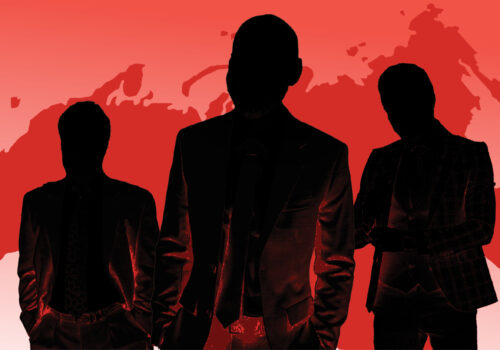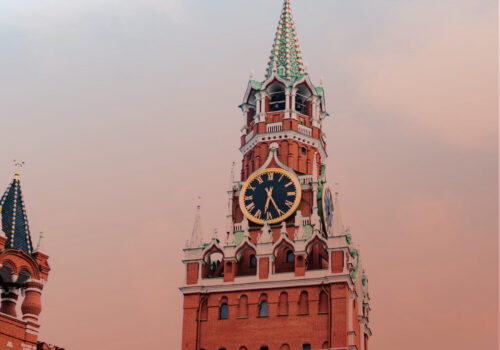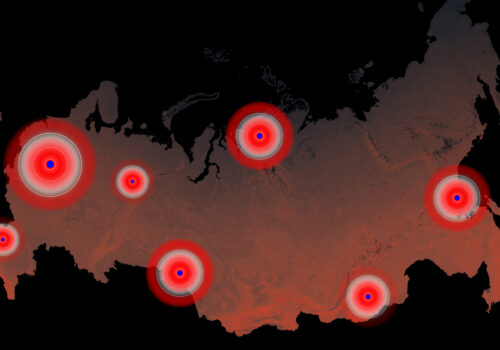The next generation: Russia’s future rulers

Russia’s full-scale invasion of Ukraine in February 2022 challenged much of the common Western understanding of Russia. How can the world better understand Russia? What are the steps forward for Western policy? The Eurasia Center’s new “Russia Tomorrow” series seeks to reevaluate conceptions of Russia today and better prepare for its future tomorrow.
Table of contents
- Introduction
- The daughters
- The Russian Jared Kushner
- The cousin
- The business prince
- The FSB prince
- The heirs
- The bodyguard
- The young deputy prime ministers
- The coach
- The future
- About the author
President Vladimir Putin is initiating a generational shift in Russia’s leadership.
According to Kremlin insiders, during his current presidential term Putin plans to retire some of his most influential and longest-serving allies, many of whom are well into their seventies. Putin himself, at age seventy-two, has no intention of stepping down. He sees himself as entirely irreplaceable. But he is gradually replacing other key figures with members of a younger generation, as the older officials age, fall ill, and become less effective. This transition began last year.
It is hardly surprising that a significant portion of this new generation coming to power consists of the children of current top officials and Putin’s closest friends—or even his own relatives. In this sense, Russia increasingly resembles a feudal state, in which power is inherited at all levels. The children of the bureaucratic aristocracy are all, in one way or another, striving for government careers and positions of influence.
This report examines the rising generation of the Russian elite and what this shift means for Russia’s future. It is based on extensive interviews with dozens of current and former Russian officials who spoke on condition of anonymity in order to discuss the inner workings of the Kremlin power elite without fear of reprisals.
The daughters
The first people to watch closely are Vladimir Putin’s daughters, known publicly in Russia as Maria Vorontsova and Katerina Tikhonova. On one hand, Putin has always kept them out of the public eye and never openly acknowledges their relationship. When a BBC correspondent at a press conference asked Putin about Vorontsova and Tikhonova, he tried to distance himself, referring to them dismissively as “these women.” Yet there is no doubt that they are indeed his daughters with his former wife, Lyudmila Putina, having changed their last names for the sake of secrecy. Their identities, however, are a poorly kept secret even to foreign governments; the United States sanctioned both of them following the 2022 Russian invasion of Ukraine.
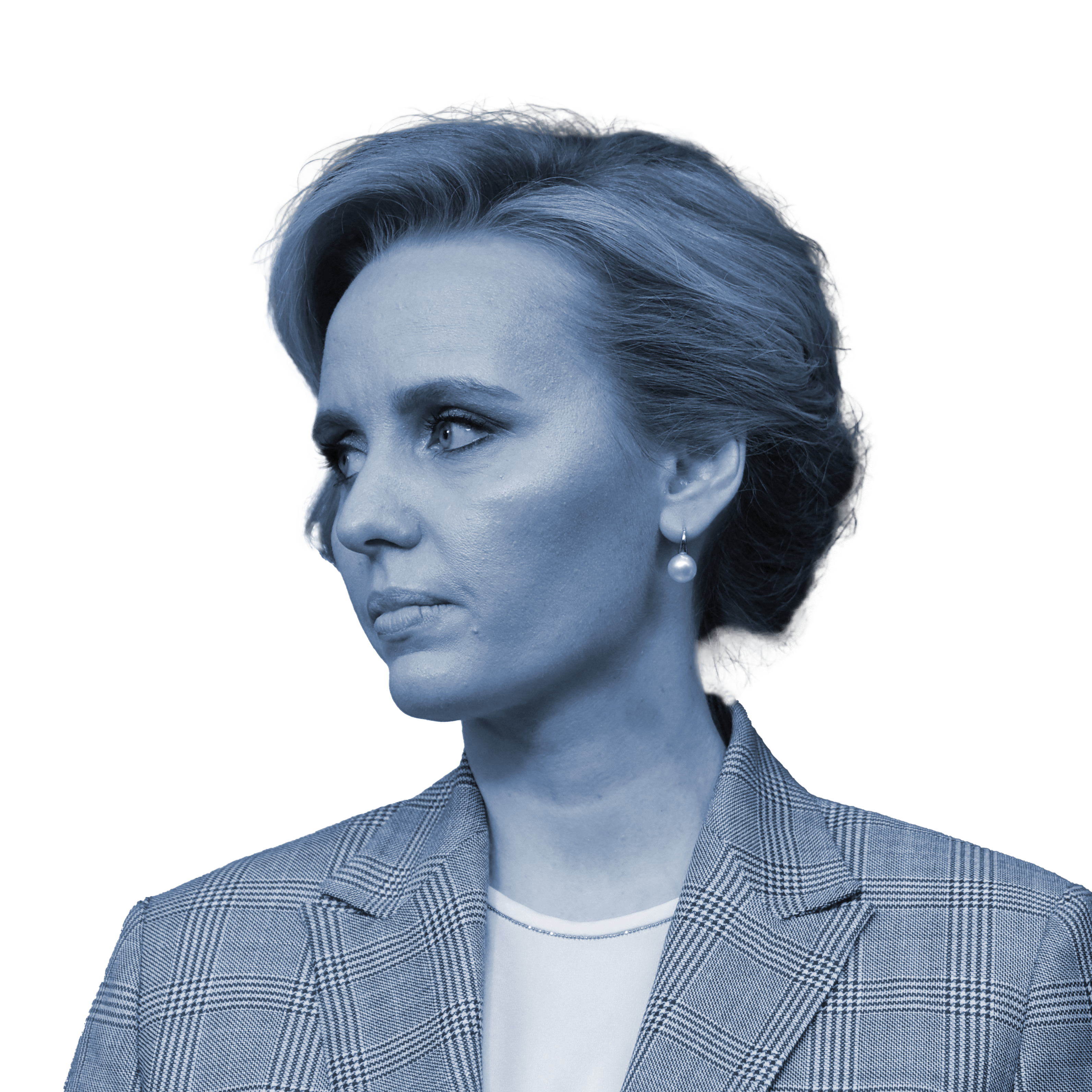
REUTERS/Anton Vaganov
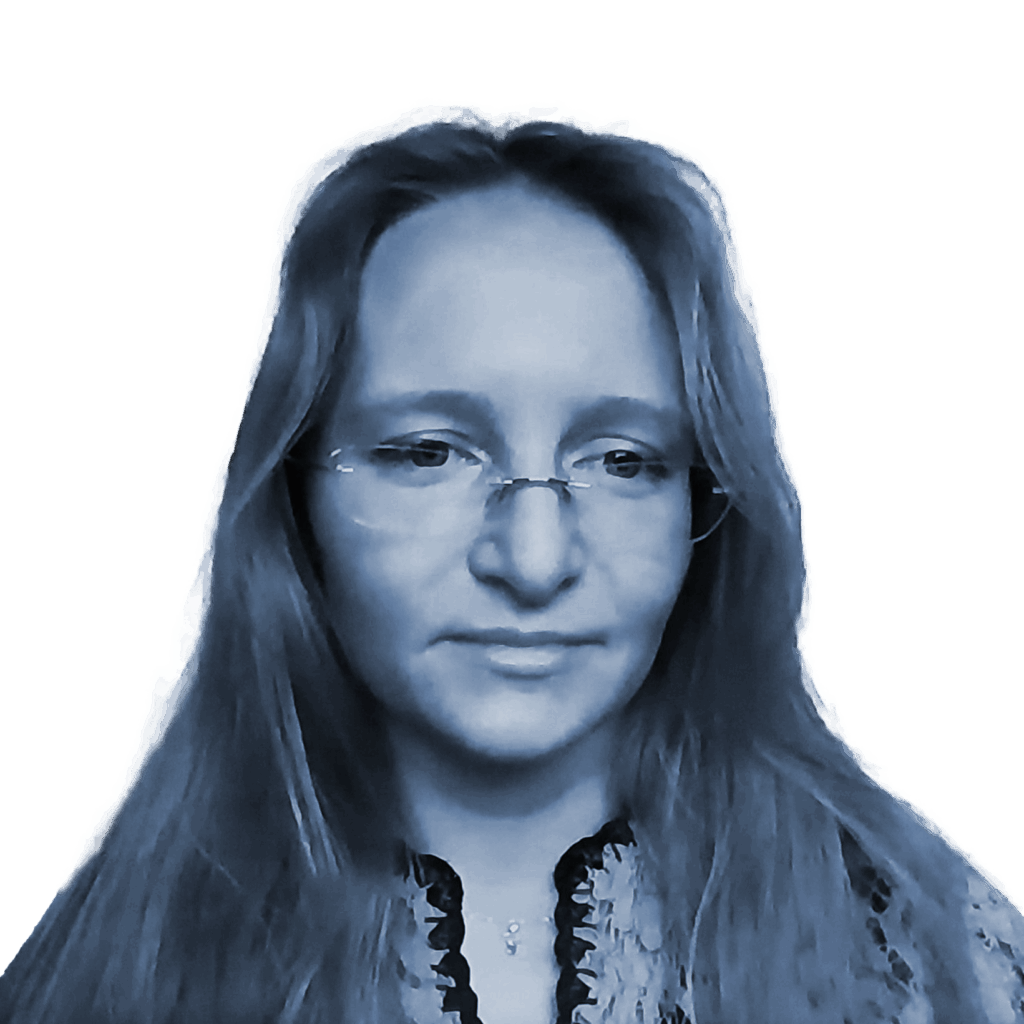
REUTERS/Evgenia Novozhenina
For now, neither daughter seems poised to take high-ranking government positions, but their influence is undoubtedly growing. At the very least, both Vorontsova and Tikhonova have become major centers of power in the business world, attracting ambitious young officials eager to secure their favor.
Last year, forty-year-old Vorontsova, Putin’s eldest daughter, gave her first major interview. She mostly discussed science (she is an endocrinologist by training and owns one of Russia’s largest medical businesses, which is heavily funded by Putin’s friends). She also touched on cultural topics, mentioning that one of her favorite books is Brave New World by Aldous Huxley, a dystopian classic about the moral decay of the West—quite a choice for the daughter of the Kremlin dictator.
Also last year, both Vorontsova and Tikhonova made their first public appearances at the St. Petersburg International Economic Forum. This signaled clearly that Putin’s daughters are ready for public life. They no longer want to remain hidden in their father’s shadow. They have ambitions of their own.
In early February 2025, a bizarre rumor spread through Russian propaganda Telegram channels. Vorontsova had allegedly gone to the frontlines in Ukraine, where she treated thousands of wounded soldiers. Some even claimed she had been injured.
Of course, there is no evidence to suggest that this is anything but pure fiction, a product of regional propagandists trying to impress their superiors. But the mere existence of such a rumor appeared to affirm what Vorontsova and Tikhonova had signaled months before: Putin’s daughters are no longer the country’s most guarded secret. It might only be a matter of time before they step onto the political stage.
For her part, thirty-eight-year-old Tikhonova is far more active and influential than her older sister. She heads Innopraktika, a scientific foundation generously sponsored by Putin’s inner circle. Over the past year, she has become an increasingly powerful player within the Kremlin’s corridors of power.
She appears to have cultivated a circle of high-ranking officials and businessmen whose career success owes, in part, to their close ties with the president’s daughter. By granting them access to Putin, she increases their political weight. One of Tikhonova’s protégés has already become one of the most talked-about figures of 2025: Kirill Dmitriev, the head of the Russian Direct Investment Fund, who was recently appointed as the president’s special envoy for international investment and economic cooperation. Obviously, this is only the first step for the ambitious Dmitriev. Speculation has it that he ultimately aims for the position of foreign minister.
The Russian Jared Kushner
Kirill Dmitriev became a star on February 18 when Russia and the United States held their first high-level talks in years in Riyadh. According to sources close to the Kremlin, it was Dmitriev who helped organize the meeting—together with his longtime acquaintance Jared Kushner, US President Donald Trump’s son-in-law.
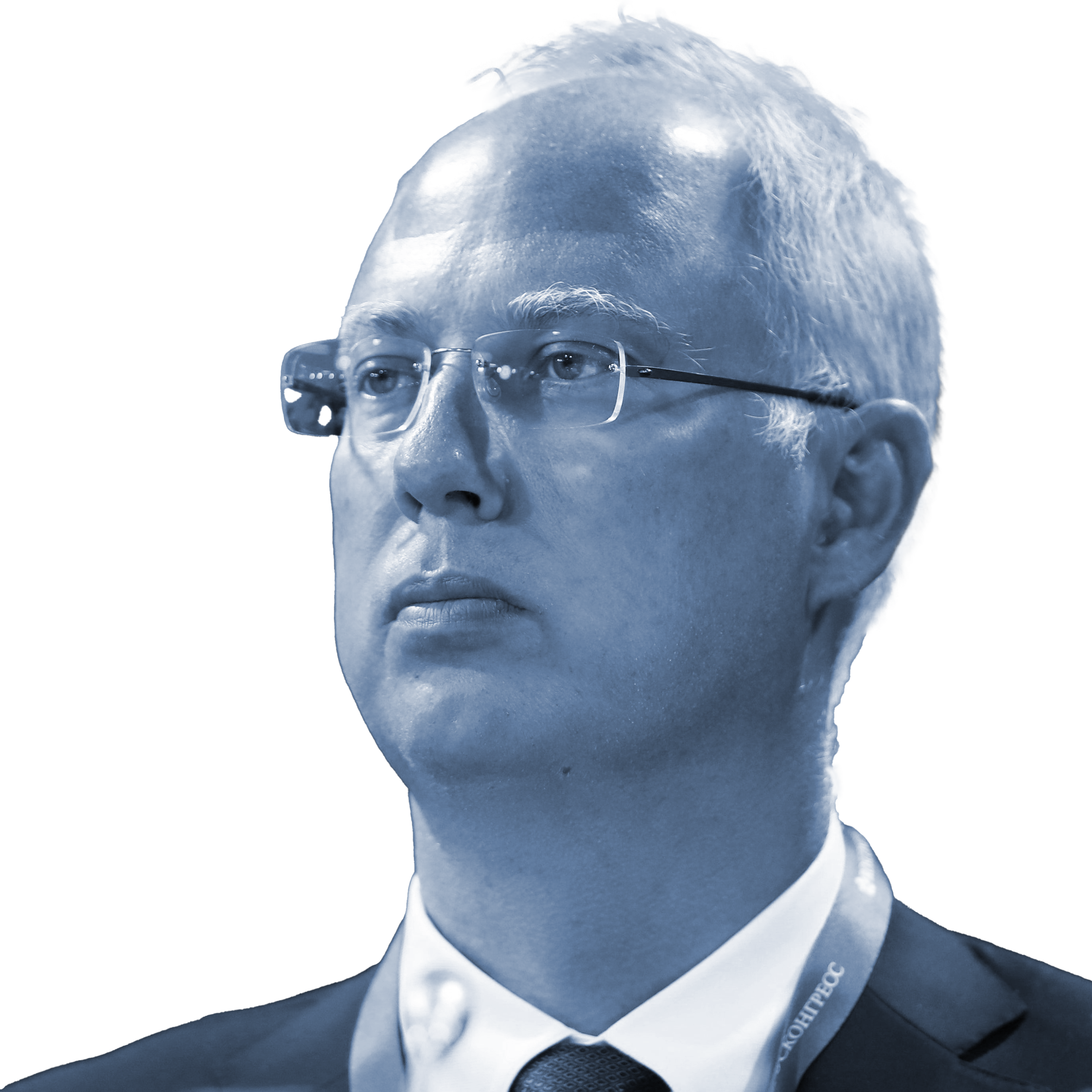
REUTERS/Evgenia Novozhenina
His presence at the negotiating table surprised many; after all, he had never been involved in diplomacy before. Seated beside him were Russia’s seventy-five-year-old Foreign Minister Sergey Lavrov and Putin’s seventy-eight-year-old foreign policy adviser Yuri Ushakov—both Soviet-era diplomats known for their lack of initiative and deep fear of their superiors. Dmitriev, at fifty, represents a different breed of Kremlin insider.
Dmitriev’s background is remarkable. Born in 1975 in Kyiv, the capital of what was then the Ukrainian Soviet Socialist Republic, he moved to the United States as a teenager. He attended Stanford University, worked at Goldman Sachs and McKinsey, and later earned a master of business administration degree from Harvard Business School. He then moved to Russia, where he worked for the US-Russia Investment Fund before heading an investment fund tied to Victor Pinchuk, the son-in-law of former Ukrainian President Leonid Kuchma.
His official biography does not mention any time in Russia’s Foreign Intelligence Service, but various sources insist that Dmitriev was affiliated with it.
Dmitriev made the most important investment of his life in the 2000s: He married Natalia Popova, who had ties to Tikhonova. According to a Kremlin insider, Dmitriev did everything possible to ensure that his wife became Tikhonova’s closest friend—her “second self.” Today, Popova serves as Tikhonova’s deputy at the Innopraktika foundation, while Dmitriev sits on its board of trustees. Their families are deeply intertwined.
In 2011, Dmitriev was appointed head of the Russian Direct Investment Fund (RDIF)—essentially, the Putin family’s financial stronghold.
In recent years, due to numerous Western sanctions against Russia, the RDIF has mainly focused on establishing connections with countries of the Global South, so Dmitriev has forged strong ties with Saudi Arabian officials. In 2019, he was even awarded the Order of Abdulaziz Al Saud, second class. His business dealings in Riyadh led him to connect with Kushner, who has since become his key US contact.
It was Dmitriev and Kushner who arranged a phone call in February between Putin and Trump and later, as noted above, selected Saudi Arabia as the venue for the first US-Russia negotiations. But Dmitriev seems to have bigger ambitions than merely holding the phone while Putin speaks with Trump.
He has long been working to raise his own profile. In 2020, during the height of the COVID-19 pandemic, he aggressively promoted Russia’s Sputnik V vaccine worldwide, giving countless interviews and claiming that Russia could save the world from the virus.
Dmitriev’s influence is clearly on the rise. However, despite the speculation, the position of foreign minister will likely remain out of his reach. Too many heavyweight contenders have been vying for it for too long.
The cousin
Vladimir Putin’s family extends beyond his daughters. The biggest rising star of 2024 was his first cousin once removed, Anna Tsivileva—arguably the most powerful woman in Russian politics today.
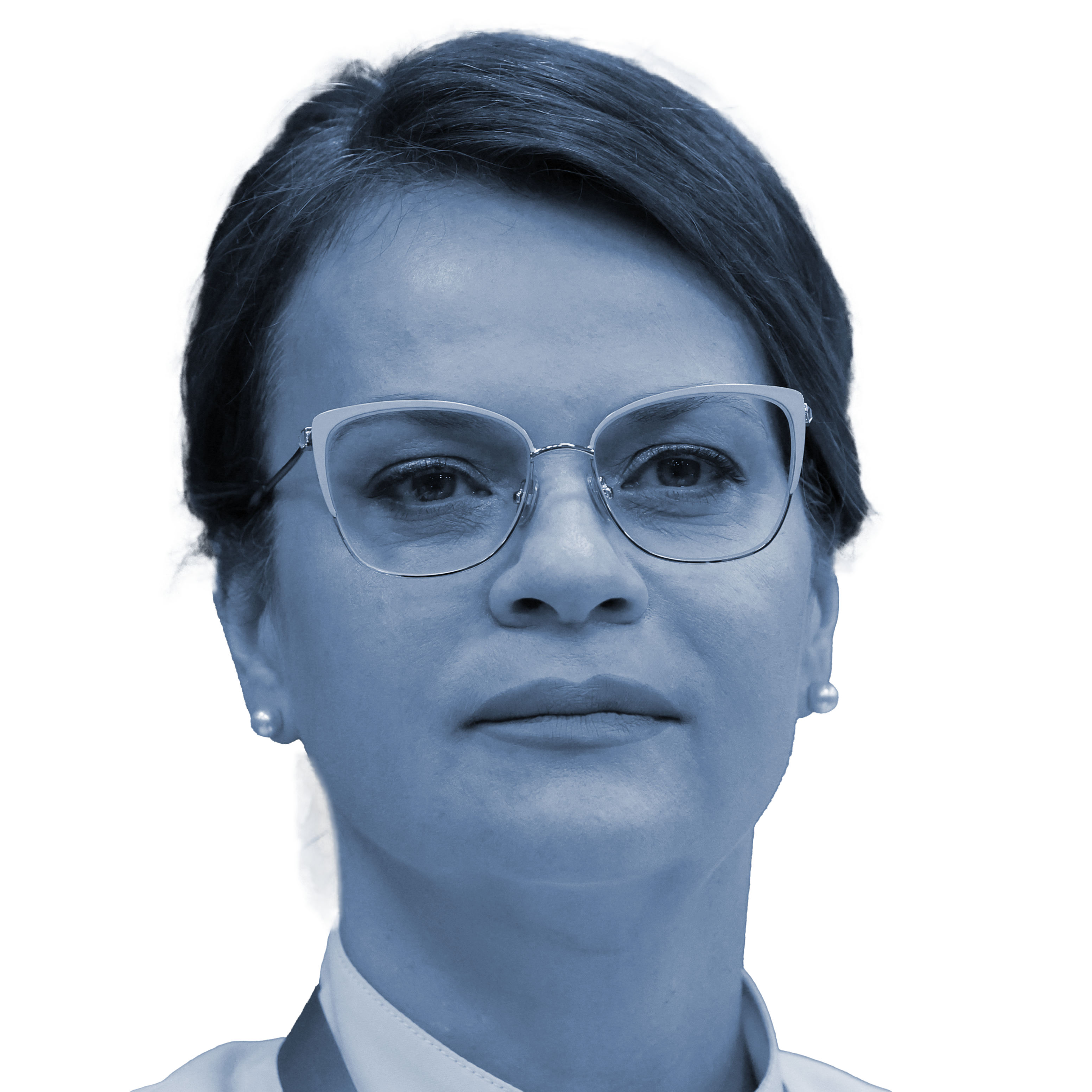
REUTERS/Anton Vaganov
Her father, Yevgeny Putin, passed away in early March 2024 at the age of ninety-one. But Tsivileva’s rise to power began long before that. In 2012, she and her husband, former military officer Sergey Tsivilev, acquired a major stake in a coal company, Kolmar. The details of the purchase remain unclear; some speculate it was simply a wedding gift from the president’s inner circle. Thanks to this acquisition, the Tsivilevs became multimillionaires in just a few years. And in 2018, Sergey was appointed governor of Kemerovo, one of Russia’s wealthiest regions in terms of natural resources.
In business circles, Tsivileva made a name for herself well before her husband became governor. According to those familiar with her, she began building her own financial-industrial empire about a decade ago, leveraging her direct access to the president. Initially, her role was secondary; she was a junior partner to Gennady Timchenko, one of Putin’s closest oligarchs. The Tsivilevs’ 2012 acquisition of a significant stake in Kolmar, allegedly as a gift from Putin via Timchenko, illustrates their close relationship with both men. But over time, Tsivileva has emerged as a formidable figure in her own right.
Tsivileva actively lobbied for her husband’s career advancement. Still, being the first lady of a major coal-mining region, while prestigious, was hardly the limit of her ambitions. Shortly after the start of the full-scale Russian invasion of Ukraine, the Russian president signed a decree creating the state-backed Defenders of the Fatherland foundation, tasked with overseeing all support for former soldiers, officers, and mercenaries who had fought in Ukraine. It was immediately clear that this would become the richest “charity” in the country, controlling all budget allocations for veterans and their families. Tsivileva was appointed to lead it.
In May 2024, as Putin prepared for his next presidential term, he dismissed Defense Minister Sergei Shoigu, along with his entire team. Shoigu’s replacement was Andrei Belousov, a former economic adviser to Putin (and reportedly a close associate of Tikhonova). Meanwhile, the new deputy defense minister responsible for logistics and supply was none other than Tsivileva.
The appointment made clear just how much Putin trusts Tsivileva. He considers her so competent that he handed her a key role in one of his most critical ministries.
To top it off, Tsivileva’s husband also received a promotion; he is now Russia’s minister of energy. After his appointment, jokes started circulating in Moscow that it was only a matter of time before Vorontsova became minister of health and Tikhonova was put in charge of science and education.
Tsivileva, however, seems to have her eyes set on an even bigger role. Insiders suggest she is positioning herself for the post of deputy prime minister for social policy, a position currently held by Tatyana Golikova. There is speculation that Golikova, who is seen as a representative of the “systemic liberals,” could soon be purged from the government.
That said, not all of Putin’s relatives share this ambition. Tsivileva’s brother, Mikhail Putin, serves as deputy chairman of Gazprom’s management board. According to sources, he is quite content with the wealth he has amassed at Gazprom and has no interest in taking on a more public role.
The business prince
One of the biggest power struggles in the Kremlin in 2024 concerned the career of Boris Kovalchuk, the son of Vladimir Putin’s closest friend, Yury Kovalchuk. For years, Yury Kovalchuk was considered the second-most-powerful person in Russia after Putin himself. They are likeminded allies and spent the 2020 lockdown together discussing history and geopolitics. According to sources, that was when they concluded that a war against Ukraine was both necessary and inevitable.
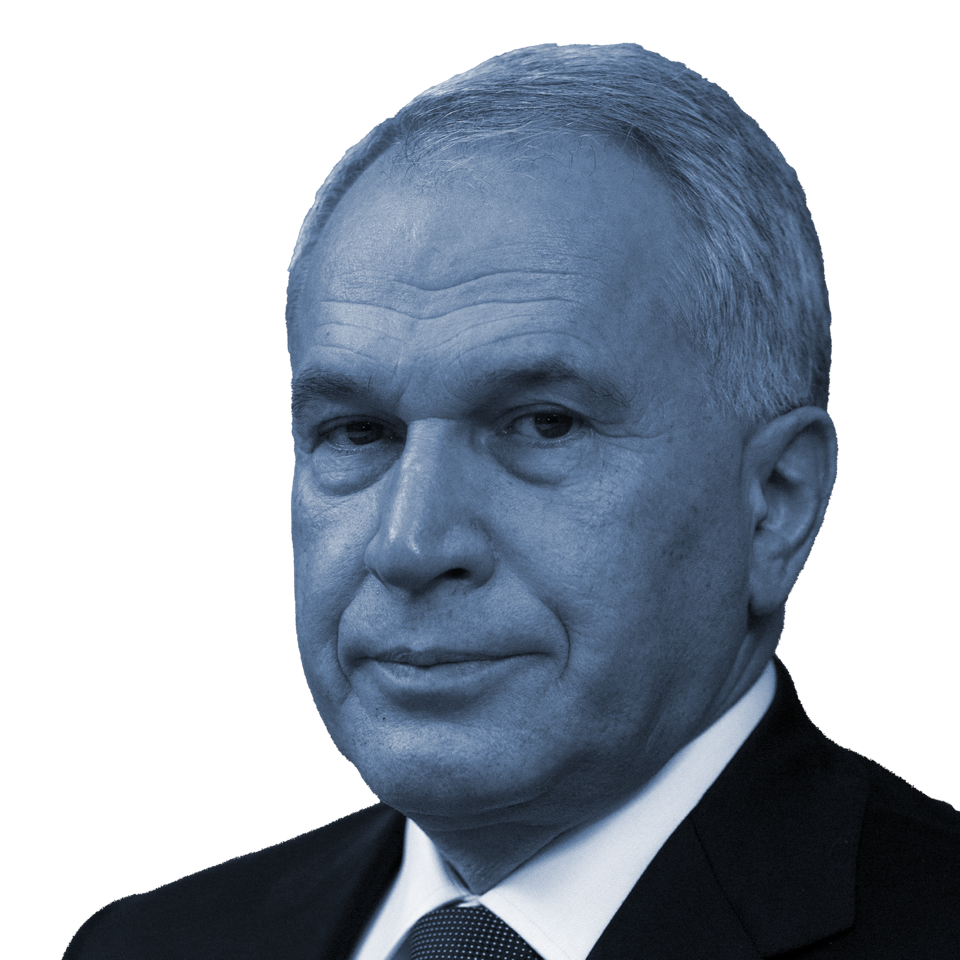
REUTERS/Alexander Zemlianichenko/Pool
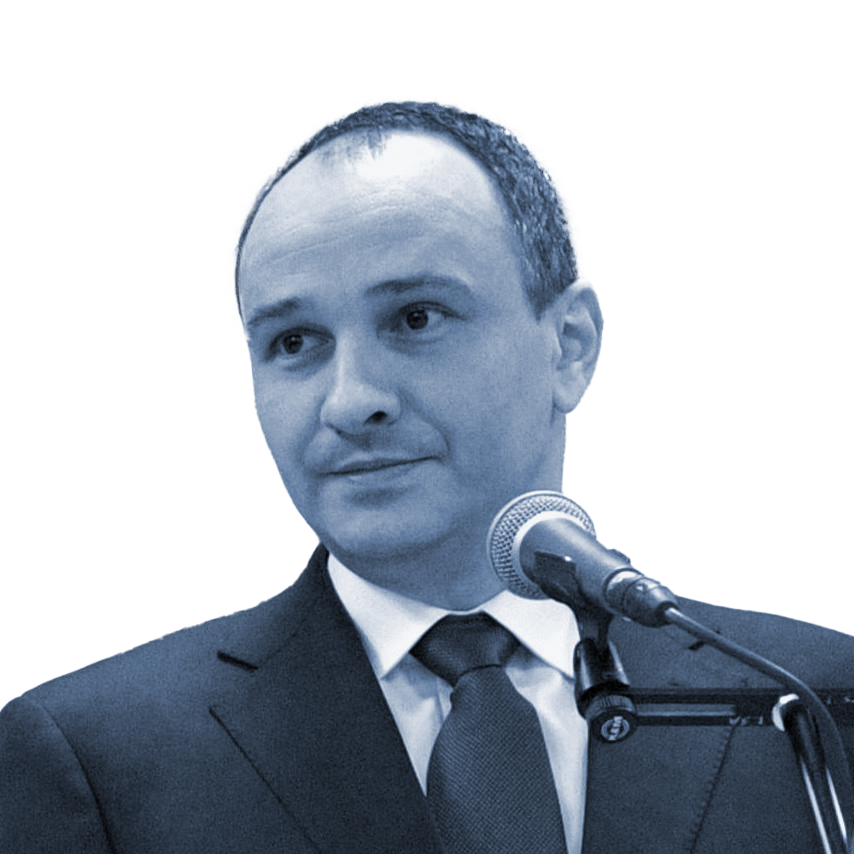
Sputnik/Alexei Druzhinin/Kremlin via REUTERS
Unlike most of Putin’s inner circle, Kovalchuk has never held a government position; he’s just a businessman. That said, he owns nearly all major non-state media in Russia, including Channel One. For a long time, he was seen as the country’s most influential oligarch, largely because he was the patron of Sergei Kiriyenko, the Kremlin’s domestic policy chief. But in the spring of last year, he decided it was time for his son to climb higher.
Boris Kovalchuk, now forty-seven, had been the chief executive officer of Inter RAO, Russia’s largest state-owned energy company, since 2009. But his father wanted him to take over one of Russia’s top state corporations, either Rosneft or Gazprom, and believed he had earned such a dizzying promotion.
Putin disagreed.
Instead of handing Boris Kovalchuk the crown jewel of Russian state assets, Putin first sent him to the presidential administration as a minor bureaucrat for just two months. Then he appointed him head of the Accounts Chamber, Russia’s state audit office.
The Accounts Chamber is an important institution. It audits all state-owned corporations. But it has long been considered a retirement post for seasoned officials at the end of their careers. For a young “prince” expecting to inherit a corporate empire, the appointment was a bitter disappointment. And for Yury Kovalchuk, once regarded as the Kremlin’s ultimate power broker, it was nearly a humiliation.
Still, this fits into the broader trend of Putin gradually sidelining the old guard. So far, Boris Kovalchuk appears to have made no impact in his new role.
The FSB prince
For years, Nikolai Patrushev was one of the most crucial figures in Russian power circles. As a former Federal Security Service (FSB) director and later secretary of the Security Council, he was widely considered the overseer of Russia’s intelligence agencies.
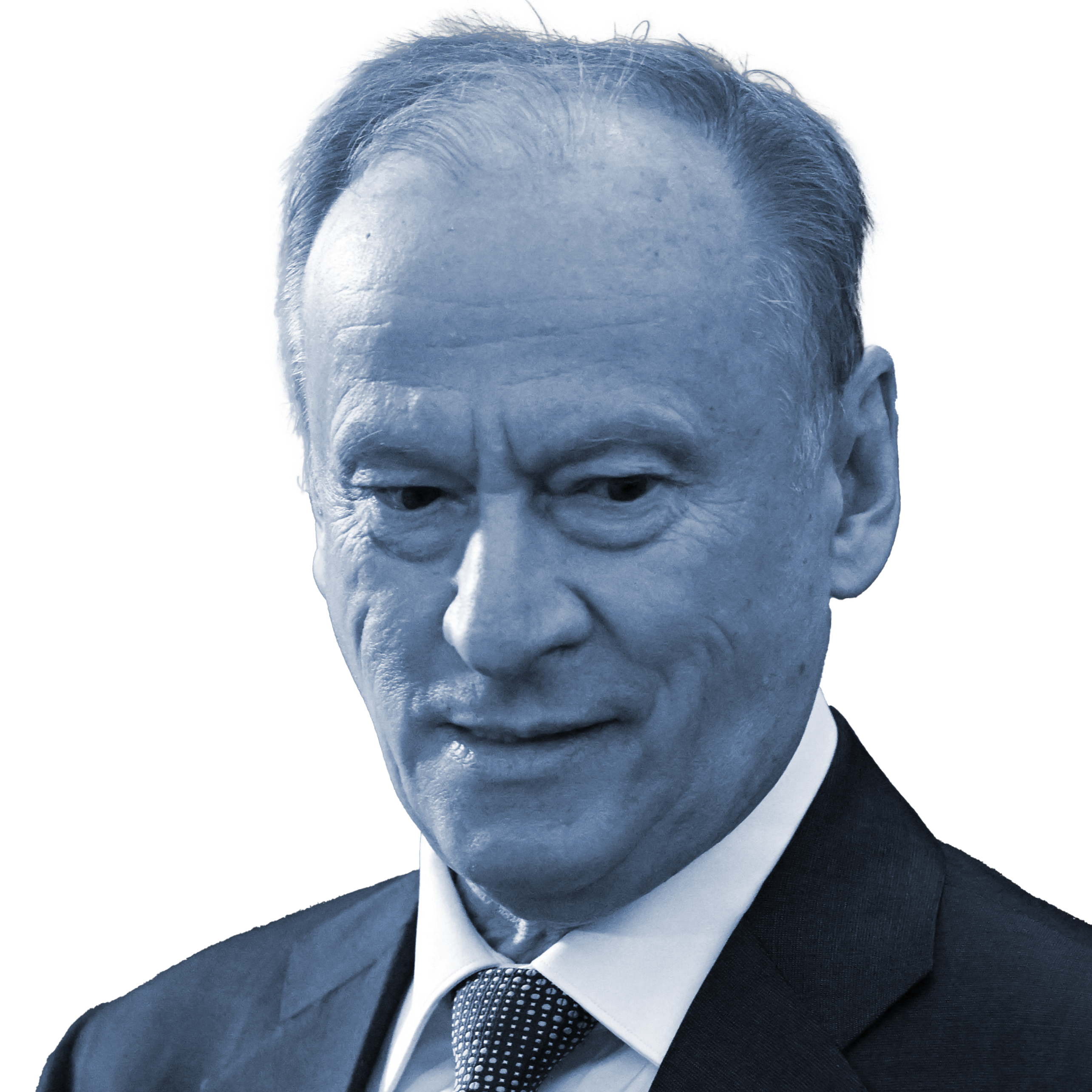
Sputnik/Pavel Bednyakov/Pool via Reuters
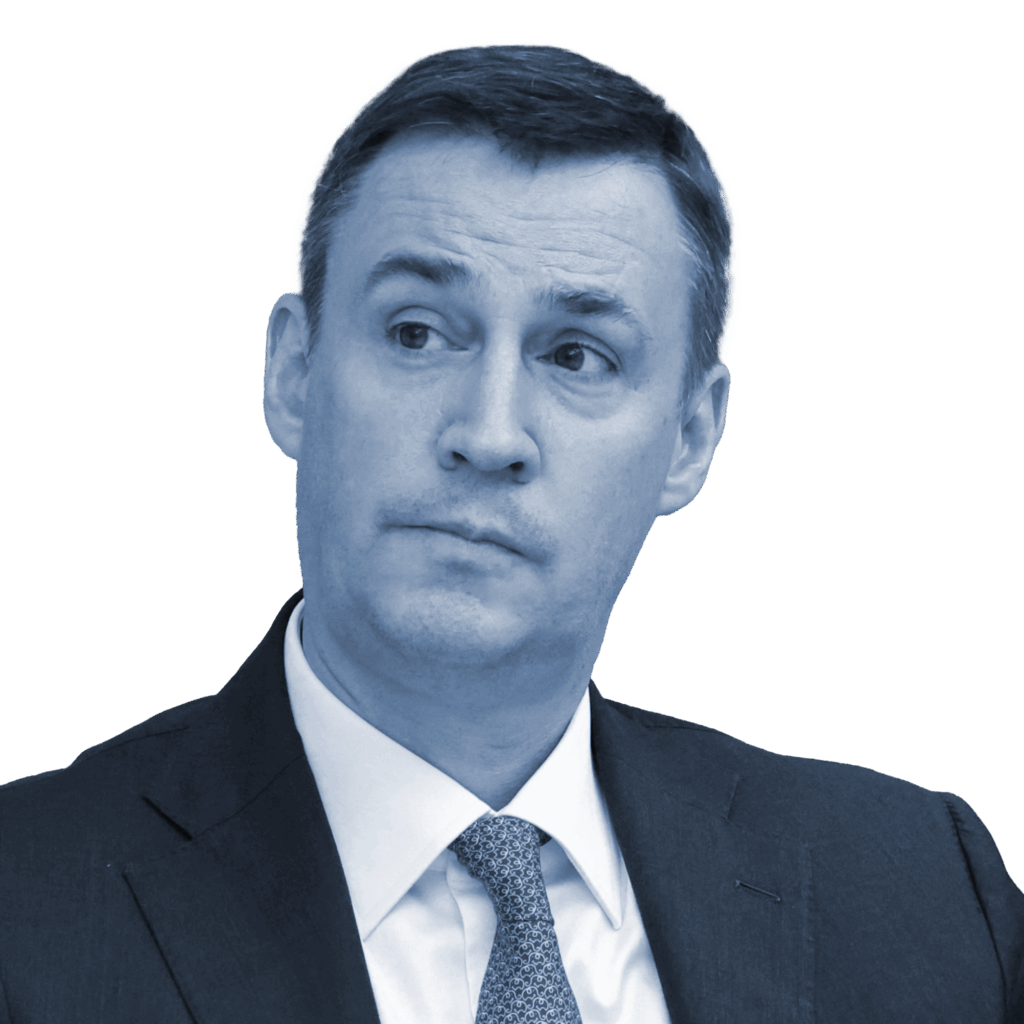
Sputnik/Mikhail Klimentyev/Kremlin via Reuters
Patrushev also played an outsized role in shaping Russia’s foreign policy. He regularly published articles in the Russian press outlining the Kremlin’s worldview. His 2023 piece in Razvedchik magazine was effectively a manifesto of modern Russian anti-Americanism. Titled “The Collapse of Parasitic Empires,” it argued that Russia must lead the Global South in a struggle against US colonialism.
But last year, even Patrushev needed to trade his own demotion for his son’s career advancement.
At forty-seven, Dmitry Patrushev is the same age as Boris Kovalchuk, but he is by far the most senior of Russia’s rising “princes.” Like his father, he graduated from the FSB Academy. By the age of twenty-nine, he had already become a senior vice president at VTB, one of Russia’s largest banks. He later headed another major financial institution, Rosselkhozbank, before being appointed minister of agriculture in 2018.
In early 2024, Nikolai Patrushev lobbied hard for his son to become prime minister. However, under the Russian Constitution, the prime minister is the second-most powerful person in the country and automatically assumes the presidency if anything happens to Putin. According to Kremlin insiders, Putin is not yet ready to name an heir—especially not from one of the major ruling clans. He is simply unwilling to entrust his fate to the Patrushev family.
In the end, Dmitry Patrushev was appointed deputy prime minister in May 2024, and he was able to install his own loyalist as the new minister of agriculture. This was a modest promotion, but a promotion nonetheless. Meanwhile, Nikolai Patrushev was reassigned to the humiliating position of presidential aide for shipbuilding—a form of forced retirement.
The message to the old guard is clear: This is the fate that awaits all Kremlin veterans.
The heirs
Appointing the children of his closest allies to top positions has long been a sacred tradition for Putin. Nepotism has never been a cause for embarrassment in modern Russia. There was even a Soviet-era joke.
“Can a general’s son become a marshal?”
“No, because marshals have children too.”
It seems that a whole army of little princes has been waiting for years for their marshal parents to vacate their chairs.
Among the most notable are the sons of former Prime Minister Mikhail Fradkov, who headed the Russian government from 2004 to 2007. After serving as prime minister, Fradkov was put in charge of the Foreign Intelligence Service, but by 2016 was sent into retirement as director of the Russian Institute for Strategic Studies, a Kremlin-connected think tank. His sons, however, remain near the top of the game. Pavel Fradkov is now one of the newly appointed deputy ministers of defense, alongside Tsivileva. Meanwhile, his brother Peter Fradkov runs Promsvyazbank, the state bank responsible for financing Russia’s defense contracts. His name is also frequently mentioned as a contender for a key position in the government’s economic bloc should the long-expected purge of the systemic liberals finally take place.
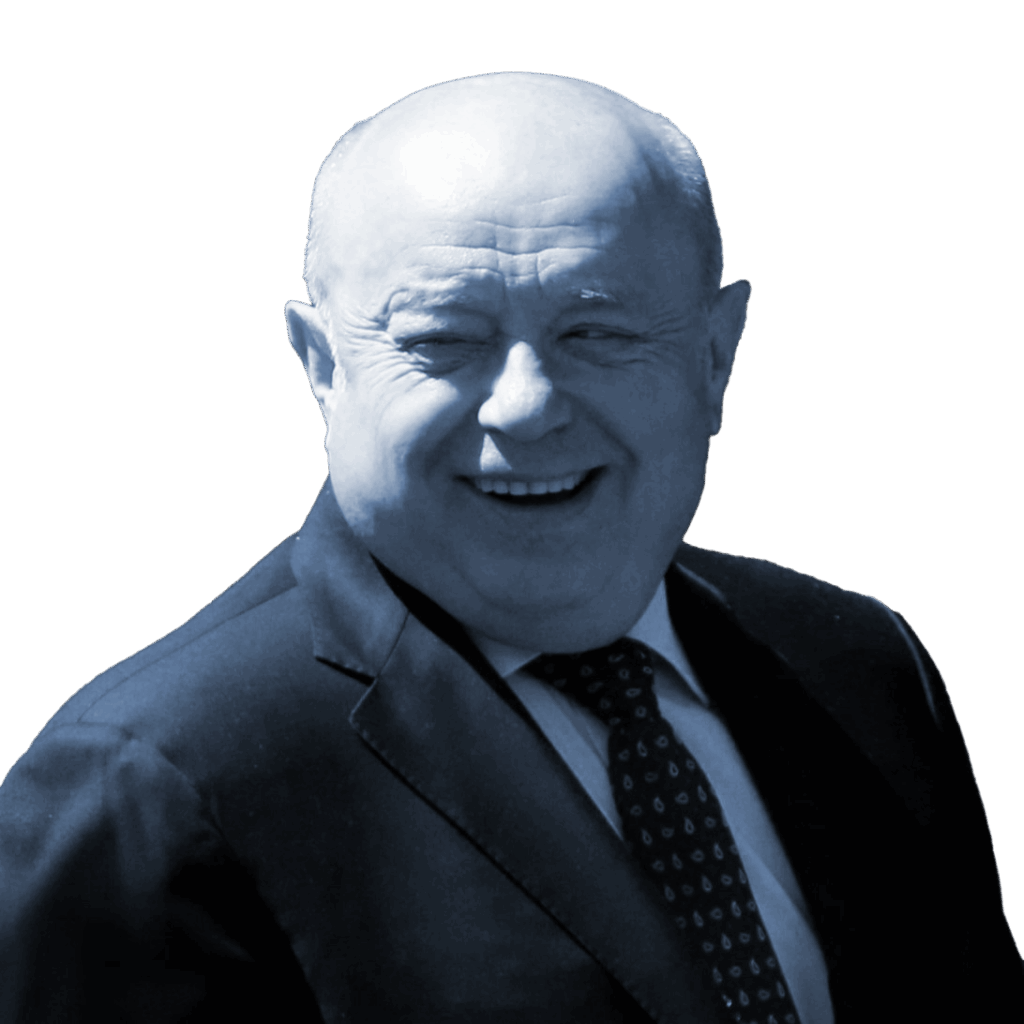
REUTERS/Grigory Dukor
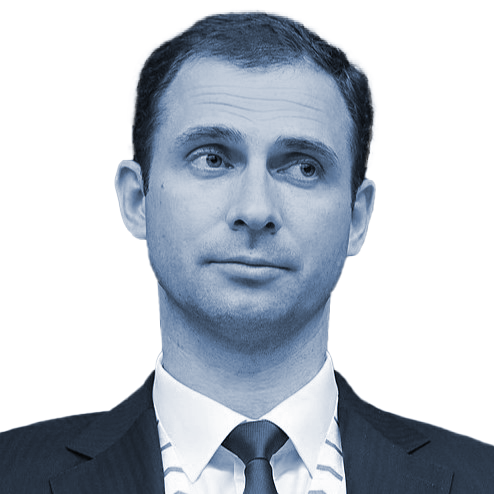
Council.gov.ru
Vladimir Kiriyenko, the son of Kremlin domestic policy chief Sergei Kiriyenko, heads VK, Russia’s leading information technology conglomerate. It owns VKontakte—the Russian equivalent of Facebook—and is attempting to build a domestic alternative to YouTube.
Still, the careers of many of these “golden children” are only as stable as their parents’ influence. Not all manage to cling to power once their fathers retire. For example, Sergey Ivanov Jr., son of former Defense Minister and Kremlin Chief of Staff Sergey Ivanov, ran Alrosa, Russia’s state diamond monopoly, until 2023. Then he was abruptly dismissed without any new position to cushion his fall.
However, not all members of this new generation are “nepo babies.” Some have climbed the ranks through a different—and sometimes more difficult—path.
The bodyguard
The biggest star among the younger generation of Russian bureaucrats is Aleksey Dyumin.
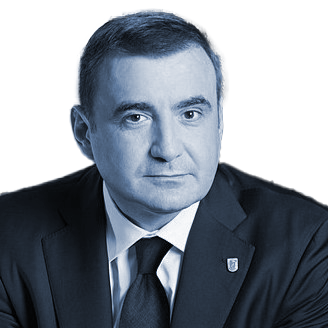
Tularegion.ru
A former Putin bodyguard, he has been considered a potential successor to the president for nearly a decade. Last year, Putin appointed him to the key leadership position of secretary of the State Council.
Dyumin is known as one of Putin’s most trusted confidants. Once, while he was still working for the Federal Protective Service, Dyumin was reportedly guarding the entrance to the president’s residence in Valdai when he received a radio message: A bear was approaching the house where Putin was sleeping. And indeed, a large brown bear soon appeared right at the entrance. Dyumin decided to scare the animal away and fired a shot at its feet. The predator took fright and ran off.
The gunshots woke Putin, who demanded an explanation. After hearing Dyumin’s story, he praised his bodyguard for not killing the bear. Dyumin later recounted the episode to journalists. Since then, he has been known as the man who saved Putin from a bear.
Beyond his work as a bodyguard, Dyumin has had a rather curious career path. He was Putin’s personal adjutant. Then in 2014, as the head of the so-called Special Operations Forces (a unit within the Ministry of Defense), he was responsible for the occupation of Crimea. As deputy minister of defense, he oversaw the creation of Wagner Private Military Company.
In 2016, Dyumin was appointed governor of Tula Oblast, a region not far from Moscow that has long been home to several major arms-manufacturing enterprises.
Dyumin served as governor for nearly eight years, gaining a reputation as an effective administrator. It is worth noting that he was not the only bodyguard to be promoted. But unlike others, he actually proved himself and reached significant heights.
Sources suggest that Dyumin played a key role in the negotiations between Wagner Group head Yevgeny Prigozhin and the Kremlin during Prigozhin’s infamous June 24, 2023 mutiny. Notably, it was on the territory of Tula Oblast—Dyumin’s region—where Prigozhin’s forces, en route to Moscow, suddenly turned around and withdrew. It was also well known that Dyumin was highly critical of Shoigu, then the defense minister.
Last year, many expected Dyumin to succeed Shoigu as minister of defense. But Putin decided otherwise. Instead of giving him that post, he brought Dyumin into the Kremlin as his aide, effectively making him a shadow defense minister working directly alongside Putin. Putin does not like to drastically strengthen any one of his close associates; he prefers to maintain a balance and observe how his subordinates compete for influence. If Putin had appointed Dyumin as minister of defense, it would effectively mean that he had designated Dyumin as his successor—and the president has no desire to create that impression.
The upshot is that it’s still unclear whether Dyumin or Belousov, the current defense minister, holds more power.
The young deputy prime ministers
Fifty-six-year-old Denis Manturov is at the height of his power. The first deputy prime minister is responsible for ensuring that the entire government is dedicated to the war effort. “Everything for the front, everything for victory” is his directive.
It is likely that he will remain in the ruling elite for some time. Manturov is the right-hand man of Sergei Chemezov, the head of Rostec, which controls the entire Russian military-industrial complex.
Chemezov—a former colleague of Putin’s from their Dresden days—is currently the most powerful figure in Russia’s economy. However, at seventy-two, he is expected to retire sooner than Putin despite being his contemporary. Manturov, as the most experienced and trusted official, is positioned to inherit his empire.
Another key figure is fifty-six-year-old Deputy Prime Minister Dmitry Chernyshenko. He entered the political elite through the 2014 Sochi Olympics, where he led the organizing committee and impressed Putin with his managerial skills. He is now seen as the most likely successor to Sergei Kiriyenko, the deputy head of the presidential administration overseeing domestic politics.
Sources have long speculated that Kiriyenko might be reassigned to oversee the occupied Ukrainian territories, likely with the rank of deputy prime minister. This move is expected to happen once active military operations in Ukraine wind down—something the Kremlin anticipates in the coming months. When that moment arrives, a reshuffle could follow. Chernyshenko would move into the presidential administration, while Kiriyenko would take his place in the government.
Sources say Putin has no particular complaints about Kiriyenko’s work. On the contrary, Kiriyenko has successfully managed political challenges, including multiple Russian elections and a constitutional referendum enabling Putin to remain in power until at least 2036. However, Kiriyenko has also led the Kremlin’s program for cultivating new leaders, which has produced a new generation of officials from whom Putin now selects key administrators. During his years overseeing domestic policy in the Kremlin, he created an entire system of competitions through which almost all young Russian officials have passed. First, there was the Leaders of Russia competition. Then the School of Governors was added, followed by the School of Mayors. Finally, after the invasion of Ukraine, a military-patriotic competition for bureaucrats called Time of Heroes was introduced.
As these new leaders grow in number, so does Kiriyenko’s influence. But the unchecked rise of any one player goes against Putin’s personnel strategy. Kiriyenko will likely be reassigned to a more challenging territory to ensure that he doesn’t become too powerful.
Meanwhile, Kiriyenko’s protégés are increasingly populating the elite. Putin surely remembers Joseph Stalin’s famous slogan, “Cadres decide everything.” If Kiriyenko remains the Kremlin’s chief recruiter, he could become a serious contender in any future succession race—something it seems Putin is not yet ready to allow.
The coach
The rise of Russia’s new elite often comes with moments of unintentional comedy. Among the country’s powerful family clans, one stands out as the clearest example that there are no limits for “nepo babies” in Russia. This is the Rotenberg family.
Arkady Rotenberg is one of Putin’s closest friends. Like Kovalchuk, he holds no official government position, yet he is one of Russia’s largest state contractors in construction. His company built the bridge connecting Crimea to Russia (which has been attacked repeatedly since 2023) and is responsible for numerous projects in occupied Ukrainian territories.
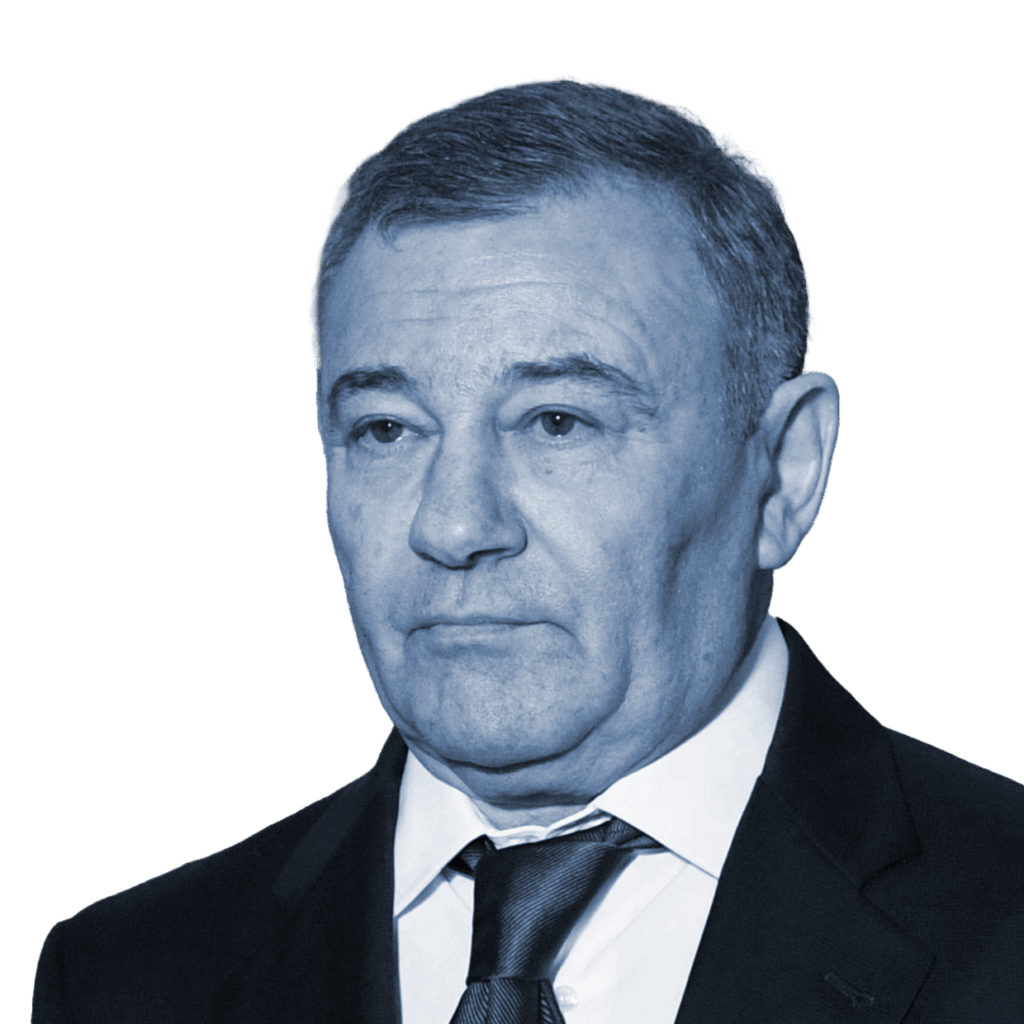
Alexander Nemenov/Pool via REUTERS
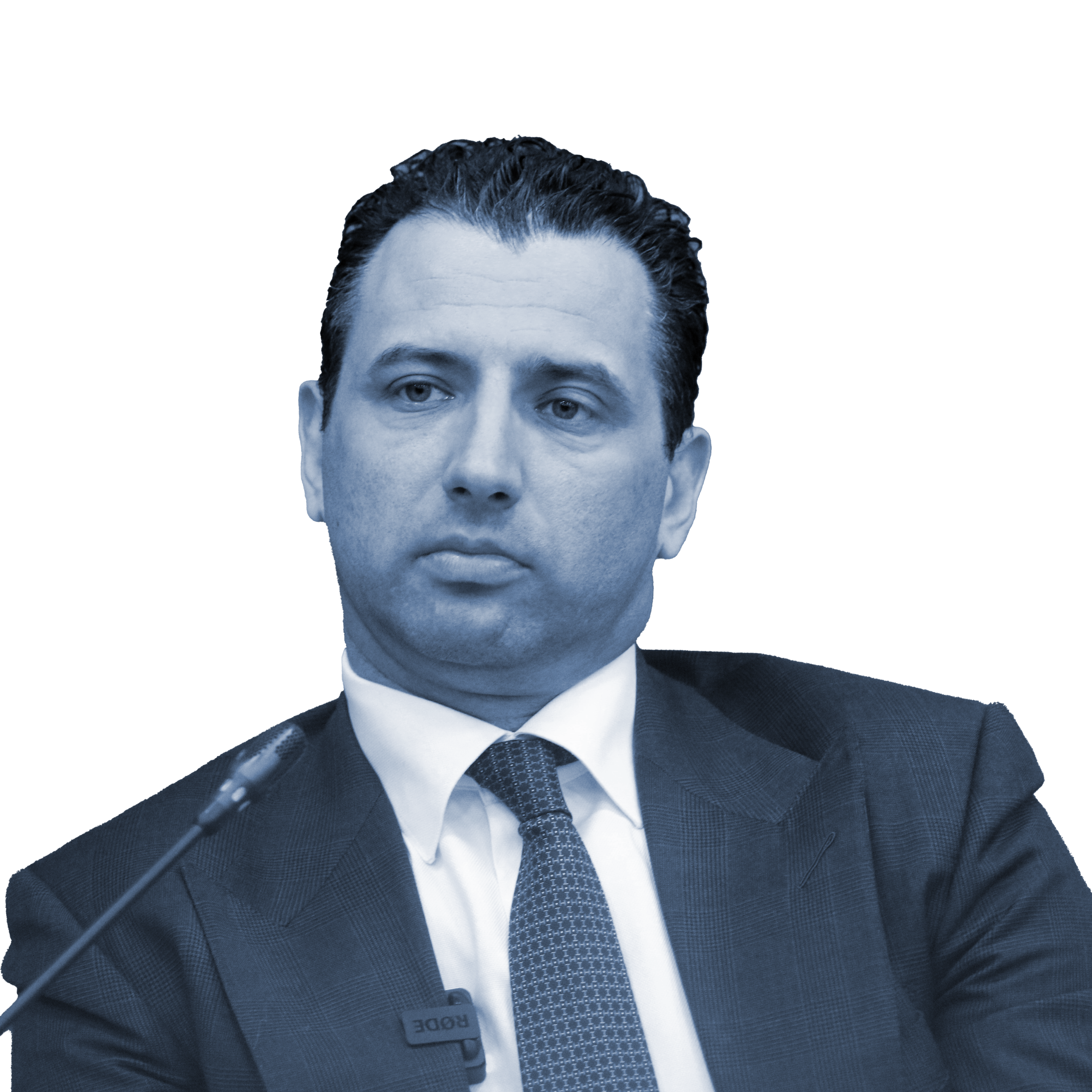
Maksim Konstantinov / SOPA Images via Reuters Connect
Rotenberg and his brother Boris have known Putin since childhood; they trained in judo together as teenagers. This remains the foundation of their power. Unlike those of other clans, the Rotenbergs’ children have yet to display any political ambitions and none are seeking government positions. However, Arkady’s nephew, Roman Rotenberg, has found his own path through hockey.
Roman Rotenberg, now forty-four, spent his childhood in Finland and later in England. But after the family’s close friend Putin came to power, he returned to Russia. At thirty, he was appointed vice president of the dominant SKA hockey club. Within three years, he became vice president of the Russian Hockey Federation.
To professional hockey players, it was clear that Rotenberg was more of an enthusiastic fan than a real expert. After a game in 2018, he publicly criticized coach Oleg Znarok—who had just led the Russian national team to an Olympic gold medal. Znarok’s response was immediate and unfiltered: “You’re gonna teach me? Who the **** are you? Get the **** out of here, kid! Teaching me how to play hockey?”
Znarok was promptly fired.
In 2022, Rotenberg appointed himself head coach of SKA and then made himself head coach of the national team as well. Sports journalists were stunned—he had no coaching experience whatsoever. But no one dared say it aloud. On television, commentators are forced to say exactly what Rotenberg wants to hear.
Rotenberg’s story appears to be a perfect symbol of Putin’s Russia: For the “princes,” nothing is off-limits. And because Russia has been banned from international competitions like the Olympics, there is no real opportunity for him to humiliate himself on the world stage.
The future
Lately, elites in Moscow have been placing bets on which elderly bureaucrat will step down first. The frontrunner for retirement is believed to be Alexander Bastrykin, Putin’s former university classmate and the head of the Investigative Committee—Russia’s equivalent of the Federal Bureau of Investigation.
There is also speculation that Shoigu may lose his position. For the past year, he has officially served as the secretary of the Security Council, but he was notably absent from the US-Russia negotiations in Riyadh, where his presence would have been expected. Two more likely retirees are Lavrov, the foreign minister, and Ushakov, the foreign affairs adviser. Both are well into their seventies, but Putin has kept them around in recent years because, with no diplomatic successes to be had, experienced diplomats were not particularly needed. Now, however, the situation is changing. The prospect of improving relations with the United States has reemerged, which means Putin might need new diplomats.
Russia’s state-owned corporations are also led by aging officials approaching retirement. The head of Transneft, Nikolay Tokarev, is seventy-four, while Rosneft’s Igor Sechin and Gazprom’s Alexei Miller are sixty-four and sixty-three, respectively.
Meanwhile, fifty-eight-year-old Roscosmos chief Yuri Borisov was recently dismissed without a new position lined up. He was replaced by thirty-nine-year-old Deputy Transport Minister Dmitry Bakanov, who has been tasked with creating a Russian equivalent of Starlink and attempting to establish communication with Starlink founder (and former Trump adviser) Elon Musk—something previous heads of Russia’s space program had clearly failed to do.
The ongoing generational shift will, of course, change the face of Russia. The new officials, who were very young when the Soviet Union collapsed, differ from the previous generation in that they lack Soviet psychology and a Soviet background.
On one hand, many members of this next generation of Russian leaders tend to idealize the Soviet Union and dream of restoring imperial power. On the other hand, they are full-fledged capitalists, and most of them clearly do not want another Cold War or international isolation for Russia.
They are the children of a cynical generation, convinced that business can—and should—be done with everyone: China, Iran, Europe, the United States, and even Ukraine.
In many ways, Putin’s personnel policy resembles the dynamics in the final years of Cuban dictator Fidel Castro’s rule. Castro also tried to cultivate a new generation of Komsomol-style loyalists—and, in some ways, succeeded. The politicians he nurtured, young enough to be his grandchildren, turned out to be even more orthodox and staunchly conservative than the generation of officials who were old enough to be his sons.
But when the decisive moment came, Castro still chose to hand power to his own brother, Raúl.
Putin has no brother, and he trusts no one. That’s why he is focused on grooming a new, younger, and thoroughly indoctrinated generation—one that he is confident will carry on his legacy.
Portions of this report are drawn from Zygar’s prior work on his Substack, The Last Pioneer
about the author
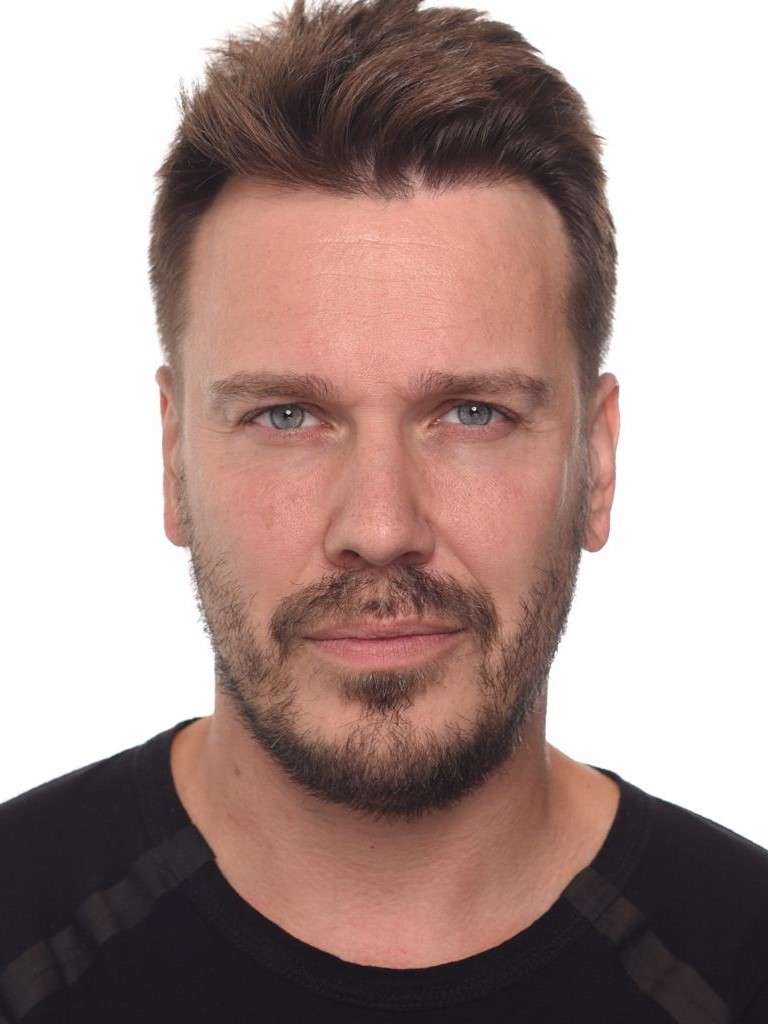
Mikhail Zygar is a nonresident senior fellow at the Atlantic Council’s Eurasia Center. He is a journalist, writer, and filmmaker, and the founding editor-in-chief of Russia’s only independent news television channel, Dozhd (TVRain).
Under Zygar’s leadership, Dozhd provided an alternative to Kremlin-controlled federal television channels by focusing on news content and giving a platform to opposition voices. The channel’s coverage of politically sensitive issues, like the Moscow street protests in 2011 and 2012 as well as the conflict in Ukraine, has been dramatically different from the official coverage by Russia’s national television stations. In 2014, Zygar received the CPJ International Press Freedom Award.
Zygar’s bestseller All the Kremlin’s Men (2015) is based on an unprecedented series of interviews with Russian President Vladimir Putin’s inner circle, presenting a radically different view of power and politics in Russia. Time named it “one of nine books to understand Russia.” His book The Empire Must Die (2017) portrays the years leading up to the Russian revolution and the vivid drama of Russia’s brief and exotic experiment with civil society before it was swept away by the Communist Revolution. It was named a Kirkus Reviews Best Nonfiction Book of the Year. His latest book, War and Punishment: Putin, Zelensky, and the Path to Russia’s Invasion of Ukraine, was published in 2023 and was featured on the New Yorker’s list of the best books of the year.
In February 2022, after Russia’s invasion of Ukraine, Zygar authored a petition against the invasion cosigned by Russia’s most prominent writers, artists, and scholars. In March 2022, he organized the only interview of Ukrainian President Volodymyr Zelenskyy for the independent Russian media. He has also started his own Substack, where he writes regularly.
In 2023, Zygar moved to New York. He’s now a press freedom fellow at the City University of New York’s Craig Newmark School of Journalism and is a visiting professor at Princeton University’s School of Public and International Affairs.
Zygar is openly gay and is married to African-Russian journalist Jean Michel Shcherbak.
Related content
Explore the program

The Eurasia Center’s mission is to promote policies that strengthen stability, democratic values, and prosperity in Eurasia, from Eastern Europe in the West to the Caucasus, Russia, and Central Asia in the East.
